Clear, 34° F
The usually fun-loving and boisterous athlete was uncharacteristically quiet and sullen; Rodrigues knew something heavy weighed on his mind.
“He’s usually this happy-go-lucky kid, but I just caught a weird vibe from him,” the coach …
This item is available in full to subscribers.
The Powell Tribune has expanded its online content. To continue reading, you will need to either log in to your subscriber account, or purchase a subscription.
If you are a current print subscriber, you can set up a free web account by clicking here.
If you already have a web account, but need to reset it, you can do so by clicking here.
If you would like to purchase a subscription click here.
Please log in to continue |
|
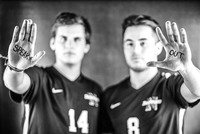
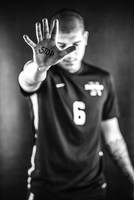
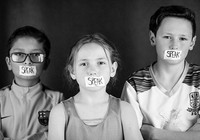
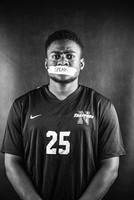
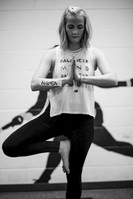
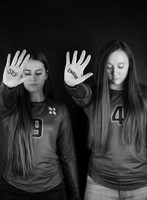
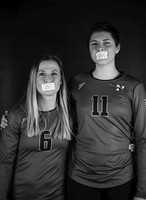
After bullying hits close to home, NWC men’s soccer team rallies around cause
Northwest College men’s head soccer coach Stan Rodrigues knew something was up when he ran into one of his players on campus.
The usually fun-loving and boisterous athlete was uncharacteristically quiet and sullen; Rodrigues knew something heavy weighed on his mind.
“He’s usually this happy-go-lucky kid, but I just caught a weird vibe from him,” the coach recalled. “I asked him ‘Hey, what’s going on?’ And he just heaved this big sigh.”
The player had discovered his younger sibling, who has a learning disability, had become the target of bullies at school. Like any protective older brother is inclined to do, the player’s first instinct was to deal with the problem directly — and not in a way that involved civil discourse.
“I told him, ‘Sorry, man, that’s not gonna happen. Let’s talk about it a bit, see what we can come up with,’” Rodrigues explained. “He was in my office for two-and-a-half hours, and over the course of his story, I was just amazed at how the adults involved on the side of the school were not managing the situation to the student’s needs. And when I found out a little bit more about it, I was even more saddened, because God forbid that was my son or daughter.”
‘Stories connect us’
With the advent of the internet and social media, the last 20 years have seen a powerful sub-section of bullying that is virtually impossible to escape from. According to statisticbrain.com, 52 percent of students nationally have admitted to being cyberbullied, be it on social media sites like Facebook and Twitter or through texts and instant messages. Of those students who reported being cyberbullied, 52 percent do not tell their parents or an authority figure when it occurs. And unlike “traditional” bullying that takes place on schoolyards and locker rooms, cyberbullying can reach its victims regardless of location — all it takes is a cellphone or Wi-Fi signal.
“When I was a kid, at 3 p.m. I could go home and be with my family and be protected. The worst thing I would get was prank calls,” Rodrigues said. “Now kids are getting harassed on Facebook and Snapchat and getting threats on instant messenger. You can’t get away from it.”
After talking with his player, Rodrigues turned to his wife Angela, who felt inspired to raise awareness in the quickest way possible: Social media. Her concept was to involve the soccer team and launch a social media campaign, inviting athletes from other NWC sports teams to get involved. She felt it crucial to use their platform, as athletes, to bring a voice to those who feel they may have lost theirs.
“A lot of our athletes come from different backgrounds,” Rodrigues said. “We all have stories. There are some major stories on this campus — kids that have gone through stuff, where you’re just like, ‘Wow, I never would have guessed that.’ Stories connect us and we can’t forget that at the foundation of all, we are all equal human beings with our own story to tell.”
When Rodrigues approached his team with the idea of the anti-bullying campaign, their reaction was enthusiastic. Even the sophomores, gearing up for graduation and preparing to take the next step in their soccer and academic careers, immediately hopped on board.
“Despite being so different, this team is so tight,” Rodrigues explained. “They’re really bonded, and they protect each other very well. They also represent Northwest very well, on and off campus. When we told them about this, that’s when all these different stories came out. That’s when things took a turn, because our kids really felt connected. You can’t beat that.”
‘A life lesson I will never forget’
Trapper midfielder Aaron Kovac, recently named a team captain for next season, has put his photography skills to use to support the cause with a series of poignant portraits of NWC athletes. The black-and-white photos contain messages of tolerance and stress the importance of speaking out.